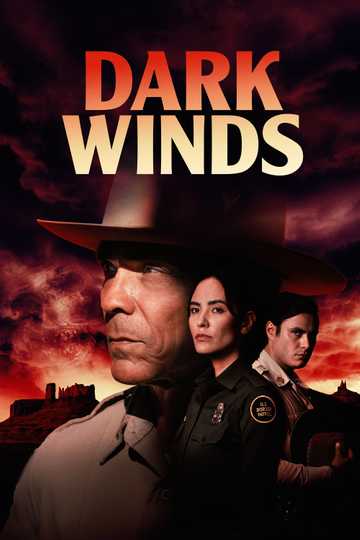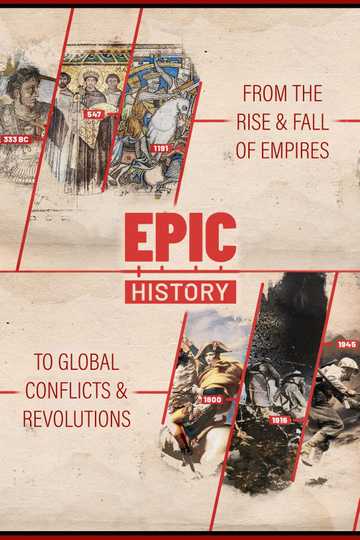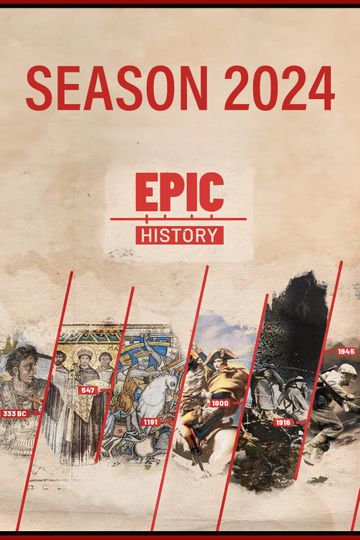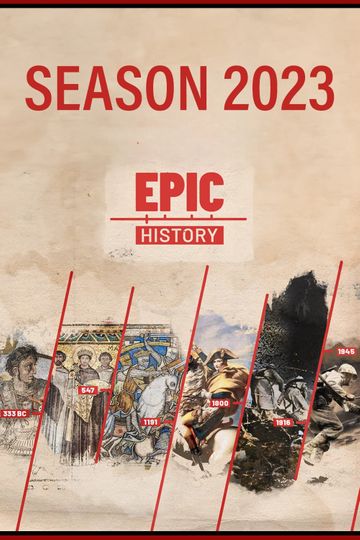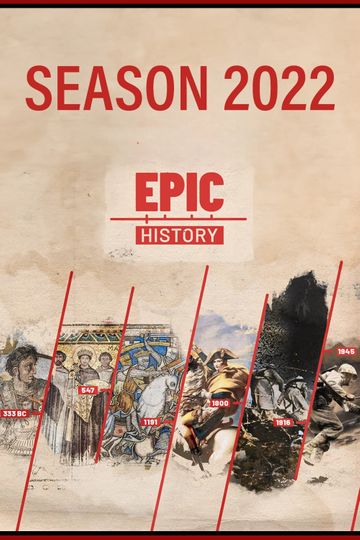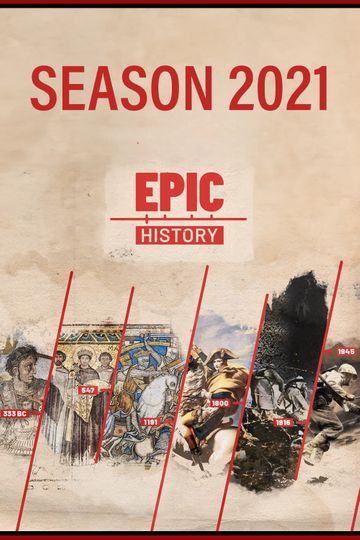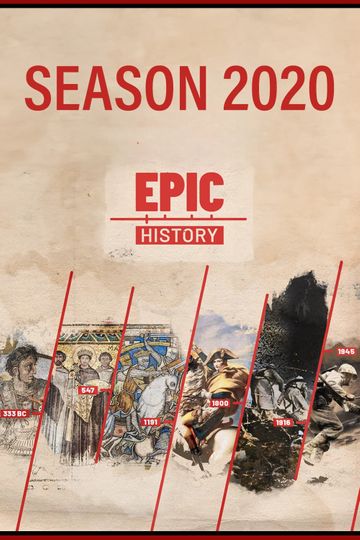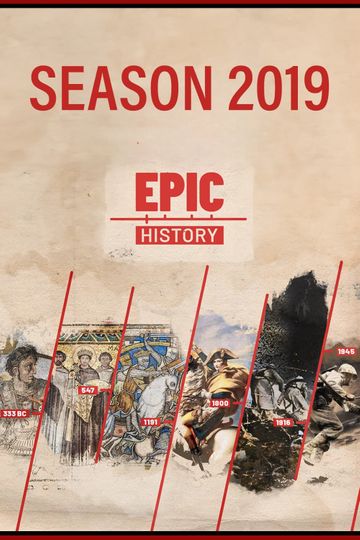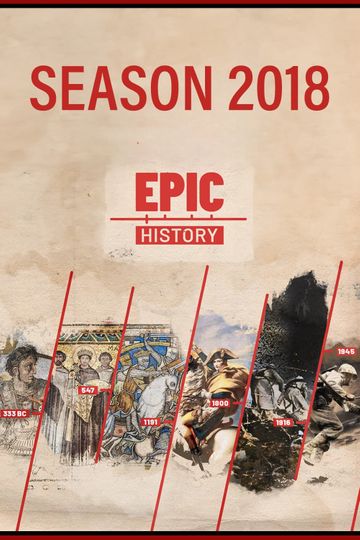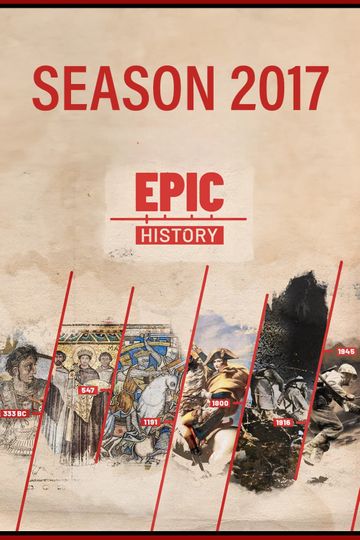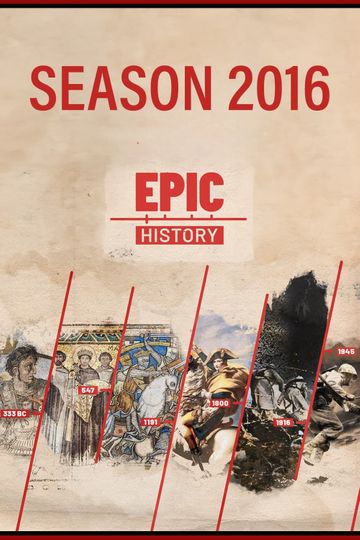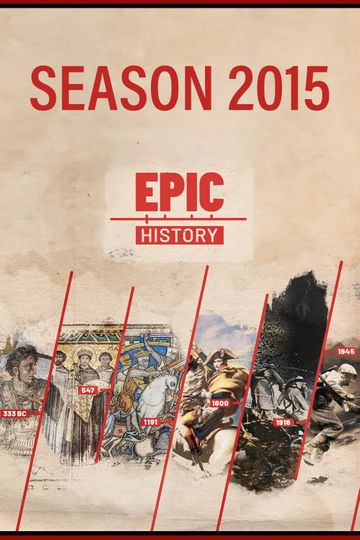2019 Episodes
1. Napoleonic Wars: Invasion of Spain 1808
In 1808, Napoleon's rivalry with Britain led to an ill-fated intervention in Portugal and Spain, that sparked a nationalist revolt against the French. At Bailén Napoleon's Empire suffered its first major defeat, and though Napoleon himself then arrived in Spain to reassert French military dominance, he could not prevent the escape of Sir John Moore's small British army, after its defensive victory at Corunna on 16 January 1809. The British army would return, under new leadership, to play a major part in his downfall.
2. Napoleon Defeated: Aspern 1809
In 1809, with Napoleon and his best troops bogged down in Spain, Austria decided to try to get revenge for her humiliation at Austerlitz three years before. Archduke Charles led an invasion of France's ally Bavaria, but Napoleon raised fresh troops and transformed the strategic situation in four days of hard fighting along the Danube. But having taken Vienna, Napoleon's overconfidence led to a desperate battle at Aspern-Essling, resulting in his first major defeat as Emperor, and the death of his closest friend.
3. Hear Alexander the Great's Legendary Speech in Ancient Greek!
Alexander is played by Charlie Merriman, an actor who studied Ancient Greek and Latin at Cambridge University. With Barefaced Greek, he performs in plays and videos in Ancient Greek.
4. Napoleonic Wars: Battle of Wagram 1809
Six weeks after his bloody repulse at the Battle of Aspern-Essling, Napoleon led his reinforced army back across the Danube. The resulting clash with Archduke Charles's Austrian army was the biggest and bloodiest battle yet seen in European history, and despite heavy French losses, resulted in a decisive strategic victory for the French Emperor.
5. Napoleonic Wars: The Peninsular War 1809 - 11
In 1809, as Napoleon fought the Austrians at Wagram, the war in Spain and Portugal continued to rage. The French had inflicted several heavy defeats on Spanish field armies, but now they faced a popular insurgency as well as a well-trained Anglo-Portuguese army led by British general Lord Wellington. The Peninsular War, as it became known, became Napoleon's 'bleeding ulcer', or his Vietnam, costing his empire nearly quarter of a million soldiers, in a war that looked increasingly unwinnable.
6. Napoleonic Wars: Battle of Salamanca 1812
In 1812 French forces in Spain were severely overstretched, as Napoleon withdrew the best troops for his invasion of Russia. Wellington saw an opportunity to strike. First he secured the strategic fortress-cities of Ciudad Rodrigo and Badajoz, both taken in bloody assaults, then advanced to Salamanca, where his Anglo-Portuguese army met Marshal Marmont's French army in one of the most decisive clashes of the Peninsular War.
7. Quick Guide to Napoleonic Infantry Tactics
A quick guide to infantry tactics and formations of the Napoleonic period, which first appeared in our video on the Battle of Aspern. In this video we try to explain why lining up shoulder-to-shoulder was not as stupid as it first seems, and how different formations were used to maximise firepower, mobility and defence. All achieved through the miracle of drill.
8. Napoleonic Wars: March of the Eagles 1805 - 09
The Napoleonic Wars (1803 - 1815) brought upheaval and destruction to Europe on an unprecedented scale. This is the story of the first half of those wars, when Napoleon Bonaparte, self-crowned Emperor of the French, ruled supreme on the battlefield and international stage - the greatest man of his age. But in the midst of victory, the seeds of his eventual downfall were sown. This video is a compilation of the first six episodes of Epic History TV's Napoleonic Wars series.
9. Napoleonic Wars: Napoleon Invades Russia 1812
In 1812 Napoleon invaded Russia with the largest army Europe had ever seen, composed of troops from France as well as Poland, Germany, Italy and several other allied states. The campaign that followed saw the Russians use scorched earth tactics to deny the enemy supplies, while Napoleon advanced further and further into Russia, searching in vain for the decisive blow that would force Emperor Alexander to negotiate peace.
10. Napoleonic Wars: Battle of Borodino 1812
In 1812 Napoleon invaded Russia with the largest army Europe had ever seen. As it advanced, the Russian army retreated, and by September Napoleon's army had marched 470 miles into the depths of Russia. 70 miles west of Moscow near the village of Borodino, the Russian army, under a new commander, General Kutuzov, finally made a stand. The battle that followed was the bloodiest day's fighting of the Napoleonic Wars, and proved one of the most infamous battles of history.
11. Napoleonic Wars: Retreat from Moscow 1812
In 1812 Napoleon invaded Russia with the largest army Europe had ever seen. But after winning a costly victory at Borodino and occupying Moscow, Napoleon's invitation to Russian Emperor Alexander to make peace met with no response. Napoleon now found himself 500 miles from friendly territory, outnumbered, poorly supplied, and with winter approaching. What followed was one of the most harrowing and disastrous events in military history - the Retreat from Moscow - in which Russian attacks, freezing weather and starvation virtually wiped out the once-proud Grande Armée.









